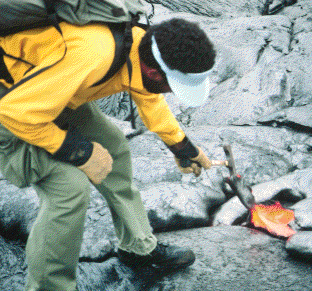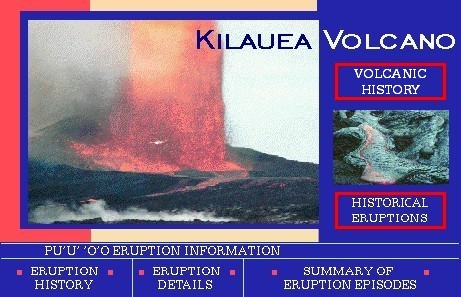
[Volcanic history] [list of historical eruptions] Pu`u `O`o is the name of the on-going
eruption of Kilauea. Links: Happy 35th bithday Puu Oo eruption on Jan 3, 2018; sorry to see you end in September 2018 |
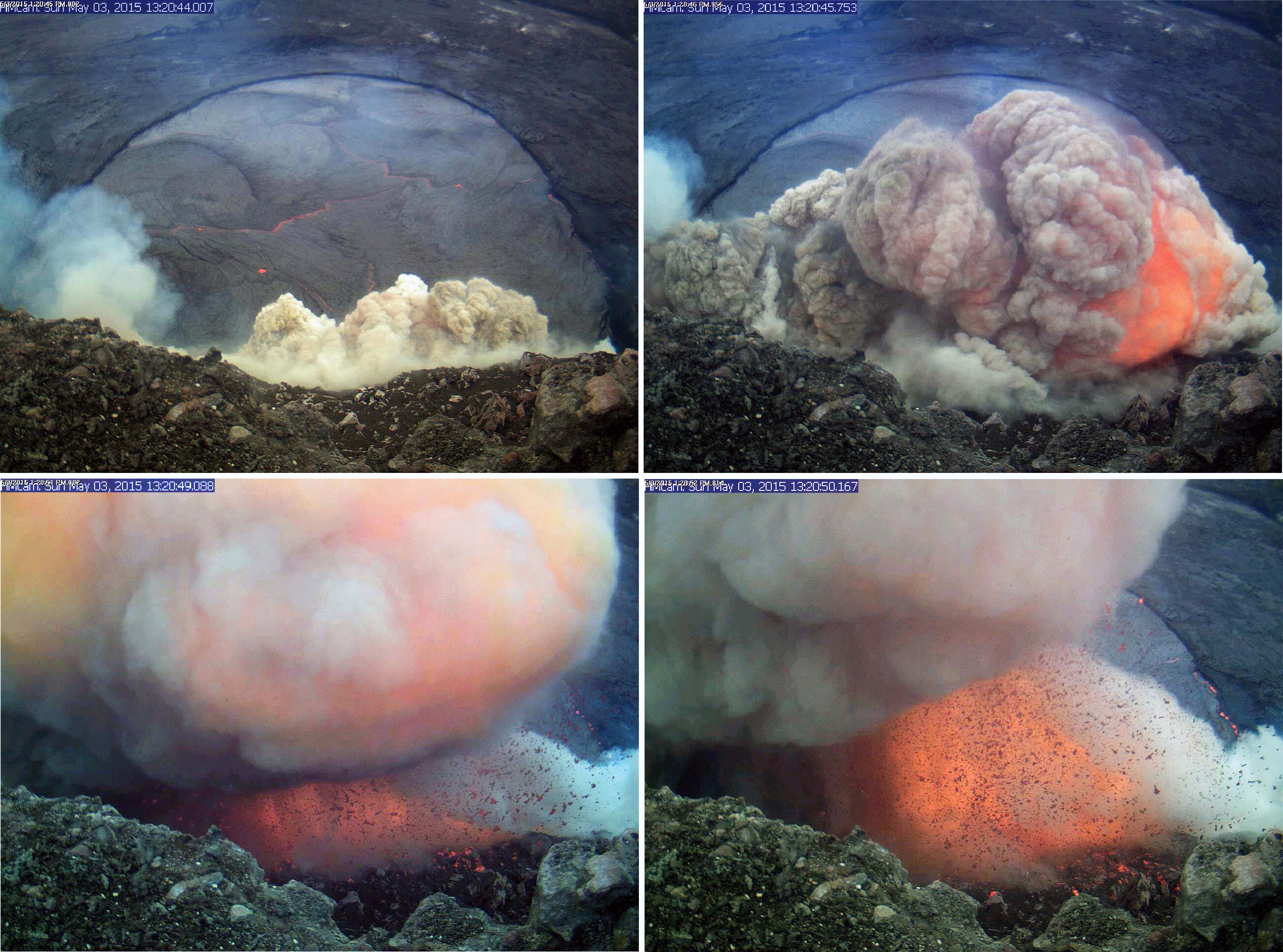
Spectacular explosion images as Halemaumau Crater wall collapsed into Kilauea lava lake on May 3, 2015. Edited HVO webcam images (modified from USGS HVO image library) |
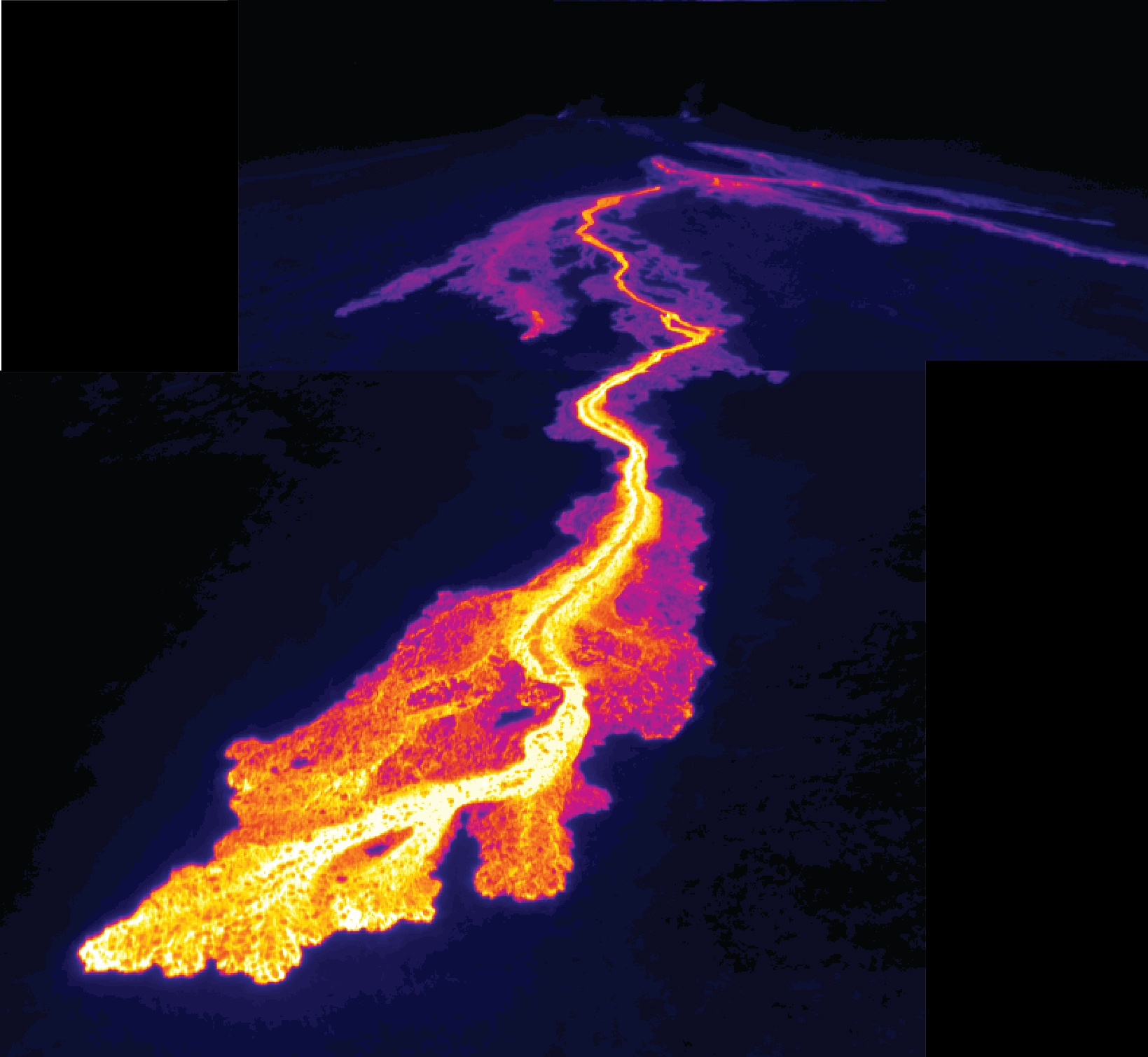
Thermal image of surface lava flow on day 1 of 27 June 2014 breakout. This flow reached the town of Pahoa about 4 months later (from USGS HVO image library) |

|
Kilauea volcano is one of the most active on Earth, nearly continuously erupting since 1983. Learn more at this site and also at the UDGS HVO website. Also, vist the Hawaii VOG Forecast Website
|
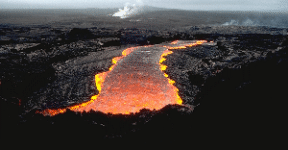 a 3 m-wide lava channel, |
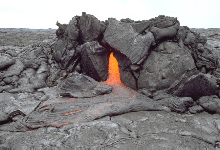 a leaky tumulus, |
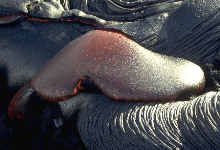 and an active pahoehoe tow |
|
The daily activities of the volcano (e.g., movement of lava flows, earthquakes, surface deformation and gas production) are monitored by the staff of the U.S. Geological Survey at the Hawaiian Volcano Observatory (HVO). T.A. Jagger founded HVO in 1911 and laid the foundation for all current studies of active Hawaiian volcanoes. Kilauea has been monitored ever since, making it one of the better studied volcanoes. Still there is much that we still do not understand about the inner workings of this volcano. Many of the members of Hawaii Center for Volcanology are working on Kilauea or have gained insights into the nature of volcanoes from visiting it. Unlike most other active volcanoes, Kilauea is approachable. It has been called the "drive-up" volcano because of the ease of access to many of its areas of volcanic activity, especially the summit caldera.
We encourage you to take some of the 'virtual' field trips of Kilauea's summit and the Chain of Craters road that are available on SOEST's internet site through the NASA Virtually Hawaii Project | ||
![]()

|

|

|

|
||
| HCV Home | Hawaiian Volcanoes | Loihi | Kilauea | Mauna Loa | Hualalai |
This page created and maintained by Ken Rubin ©, krubin@soest.hawaii.edu
![]() Follow site author @kenrubin on Twitter
Follow site author @kenrubin on Twitter
Other credits for this web site.
Volcano Quick Links
General Reference
Hawaiian volcano info:Links

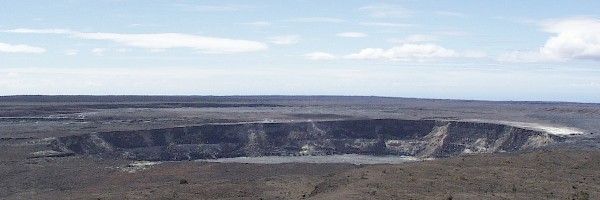
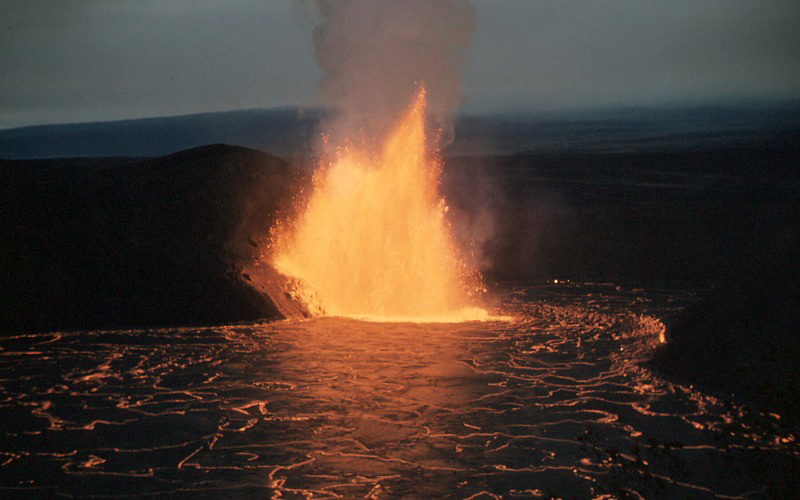 Lava fountain and lava lake during 1959 Kilauea Iki eruption, just before lake drainback.
Lava fountain and lava lake during 1959 Kilauea Iki eruption, just before lake drainback. 